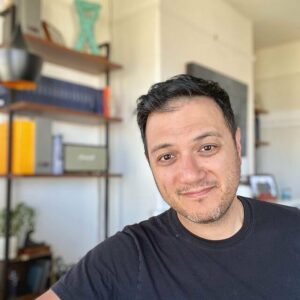
We’re delighted to be hosting Nicholas Phan—praised by the Boston Globe as “one of the world’s most remarkable singers”—in an online Words and Music workshop Saturday, September 19. An avid recitalist and proponent of vocal chamber music, Nick founded the Collaborative Arts Institute of Chicago in 2010 to promote art song and vocal chamber music. He has also performed with many of the leading orchestras in North America and Europe, and has sung the title roles in Bernstein’s Candide, Stravinsky’s Oedipus Rex, and many other operas.
We recently chatted with Nick to get a preview of the workshop and a sampling of his professional tips and techniques.
Like most classically trained singers, you sing in a wide range of languages. What was your linguistic training?
My mother is Greek-American, and I went to Greek-language classes at church from first through sixth grade. In middle school my mother arranged for me to audit Greek classes at the University of Michigan. In middle and high school I also studied French, which seemed easy after Greek! Then in college I had two years of Italian and one year of German. I ended up working a lot in Germany, so I had plenty of time to practice my the language.
In addition to those languages, I’ve sung in Italian, Hungarian, Czech, and Russian.
How can amateur singers prepare themselves to sing in languages other than their native language?
The best preparation is a knowledge of the International Phonetic Alphabet (IPA), which gives a pronunciation symbol for every sound in every language. It’s a helpful shorthand for when you start digging into the sounds of the words.
Then you have to create a sensible translation of the text you’re singing, so you understand the meaning of every word and phrase—not just how to pronounce it.
And then there’s the music!
I tell my students that as singers we have the unique challenge of working with multiple scripts. Instrumentalists have one script: the notes. Actors have one script: the words. As singers we have both, and those two “languages” are very much in dialogue with each other. The music is always trying to give life to the text. In the workshop, I’m looking forward to exploring how those languages communicate with each other to make songs and vocal music the magical thing it is.
